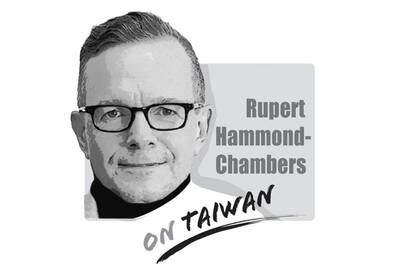No sooner had Chinese Nationalist Party (KMT) candidate Ma Ying-jeou (
Following Ma's comments on Sunday that in order to bring about his promised thaw in cross-strait relations, he would revive the Straits Exchange Foundation (SEF) to serve as the primary conduit for negotiations, speculation has increased on who will be appointed head, with former KMT chairman Lien Chan (
Lien can certainly stake a strong claim for the position for he was instrumental in forging closer ties between the KMT and the Chinese Communist Party (CCP) when he made his controversial "journey of peace" to China in April 2005 -- a trip that was repeated by Soong a few weeks later.
Still bitter at his presidential election defeat to President Chen Shui-bian (
Lien also played a key part in forging a shady cooperation pact that saw the two parties join forces to oppose their common enemy -- pro-independence forces in the DPP.
It would therefore be understandable if Ma chose someone like Lien or Soong: As part of the KMT's pro-China old guard, they have much more in common with Beijing's ultra-conservative officials.
This would also appear to be a smart move, especially if former president Lee Teng-hui (
Take into account Ma's talk of an Olympic boycott last week, which was followed by an astounding attack on Chinese Premier Wen Jiabao (
But even so, it is difficult to imagine why Ma would want Lien or Soong to represent his government in talks with China. Lien may have been instrumental in helping the KMT and CCP kiss and make up after decades of war and hostility, and he may have been overjoyed at Ma's election, but he openly opposed Ma when he ran for the party chairmanship in 2005 and the presidency.
Add this to the fact that Ma was an abject failure as KMT chairman, failing either to reform the party, deal transparently with its assets, control the party's legislators or deal with PFP challenges to his authority, and it is hard to see how he could keep either Lien or Soong in check, especially given the KMT party hierarchy, which still allows the aged, pro-China autocrats to wield power.
But if Ma sticks to his pre-election promise not to talk about unification during his term(s), then the sovereignty issue should not be too much of an obstacle because the SEF's mandate will be strictly limited to economic affairs and issues like direct links and cultural exchanges.
In this case, the SEF might be the perfect place for Lien or Soong, as Ma could assign a trusted understudy to keep watch as he puts the old troublemakers out to pasture.
Having lived through former British prime minister Boris Johnson’s tumultuous and scandal-ridden administration, the last place I had expected to come face-to-face with “Mr Brexit” was in a hotel ballroom in Taipei. Should I have been so surprised? Over the past few years, Taiwan has unfortunately become the destination of choice for washed-up Western politicians to turn up long after their political careers have ended, making grandiose speeches in exchange for extraordinarily large paychecks far exceeding the annual salary of all but the wealthiest of Taiwan’s business tycoons. Taiwan’s pursuit of bygone politicians with little to no influence in their home

In 2025, it is easy to believe that Taiwan has always played a central role in various assessments of global national interests. But that is a mistaken belief. Taiwan’s position in the world and the international support it presently enjoys are relatively new and remain highly vulnerable to challenges from China. In the early 2000s, the George W. Bush Administration had plans to elevate bilateral relations and to boost Taiwan’s defense. It designated Taiwan as a non-NATO ally, and in 2001 made available to Taiwan a significant package of arms to enhance the island’s defenses including the submarines it long sought.
US lobbyist Christian Whiton has published an update to his article, “How Taiwan Lost Trump,” discussed on the editorial page on Sunday. His new article, titled “What Taiwan Should Do” refers to the three articles published in the Taipei Times, saying that none had offered a solution to the problems he identified. That is fair. The articles pushed back on points Whiton made that were felt partisan, misdirected or uninformed; in this response, he offers solutions of his own. While many are on point and he would find no disagreement here, the nuances of the political and historical complexities in
Taiwan faces an image challenge even among its allies, as it must constantly counter falsehoods and misrepresentations spread by its more powerful neighbor, the People’s Republic of China (PRC). While Taiwan refrains from disparaging its troublesome neighbor to other countries, the PRC is working not only to forge a narrative about itself, its intentions and value to the international community, but is also spreading lies about Taiwan. Governments, parliamentary groups and civil societies worldwide are caught in this narrative tug-of-war, each responding in their own way. National governments have the power to push back against what they know to be